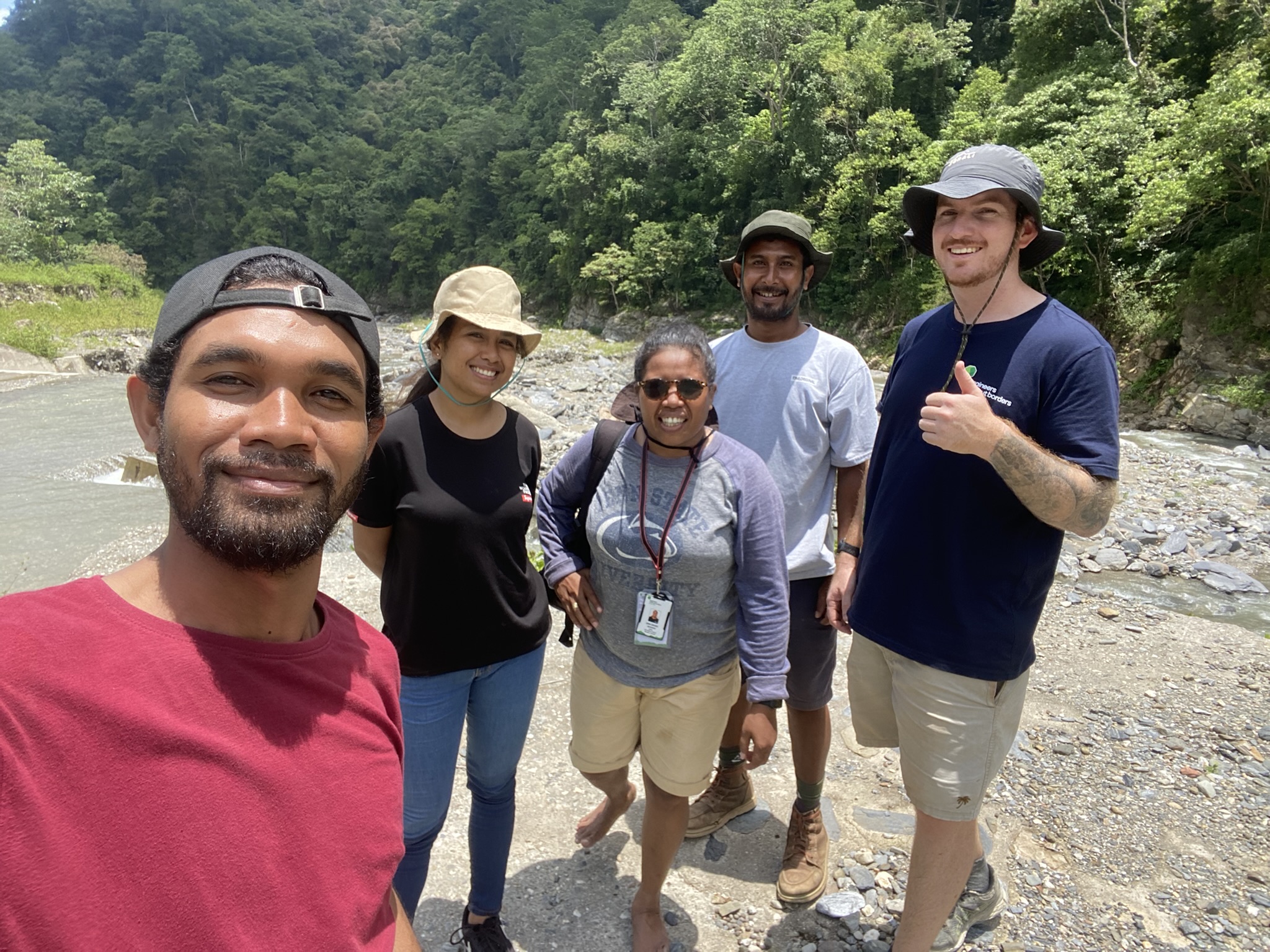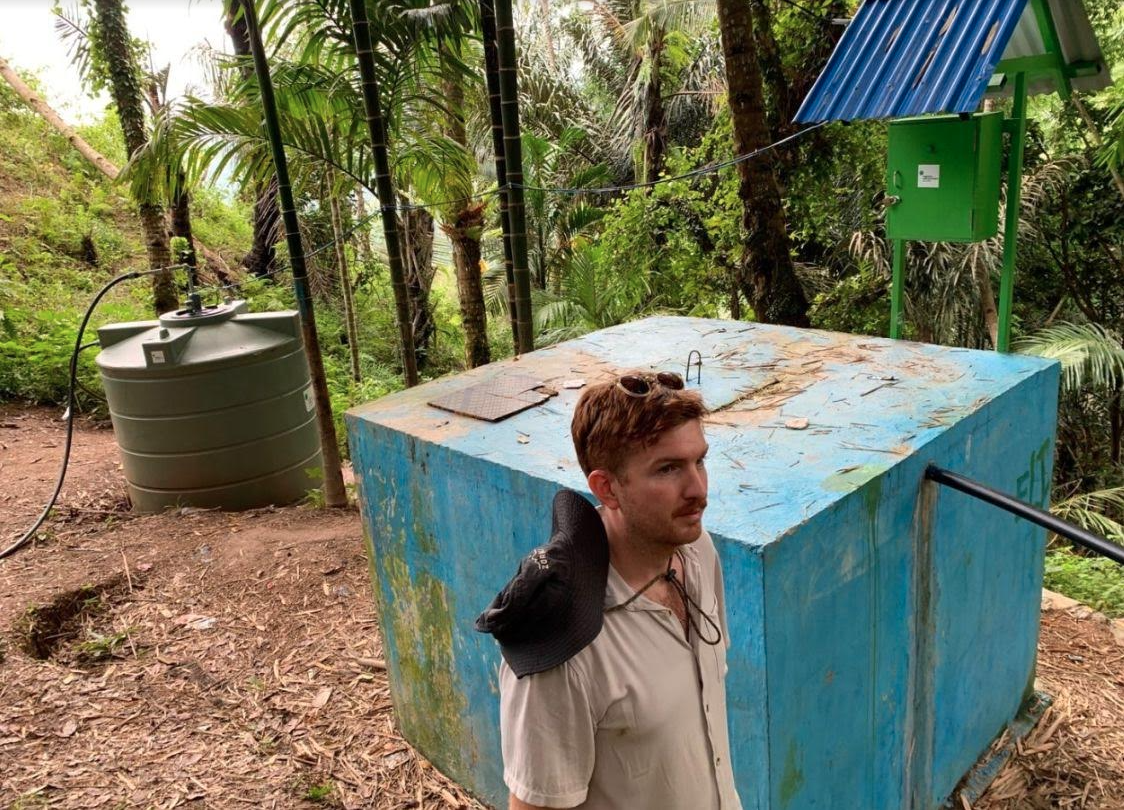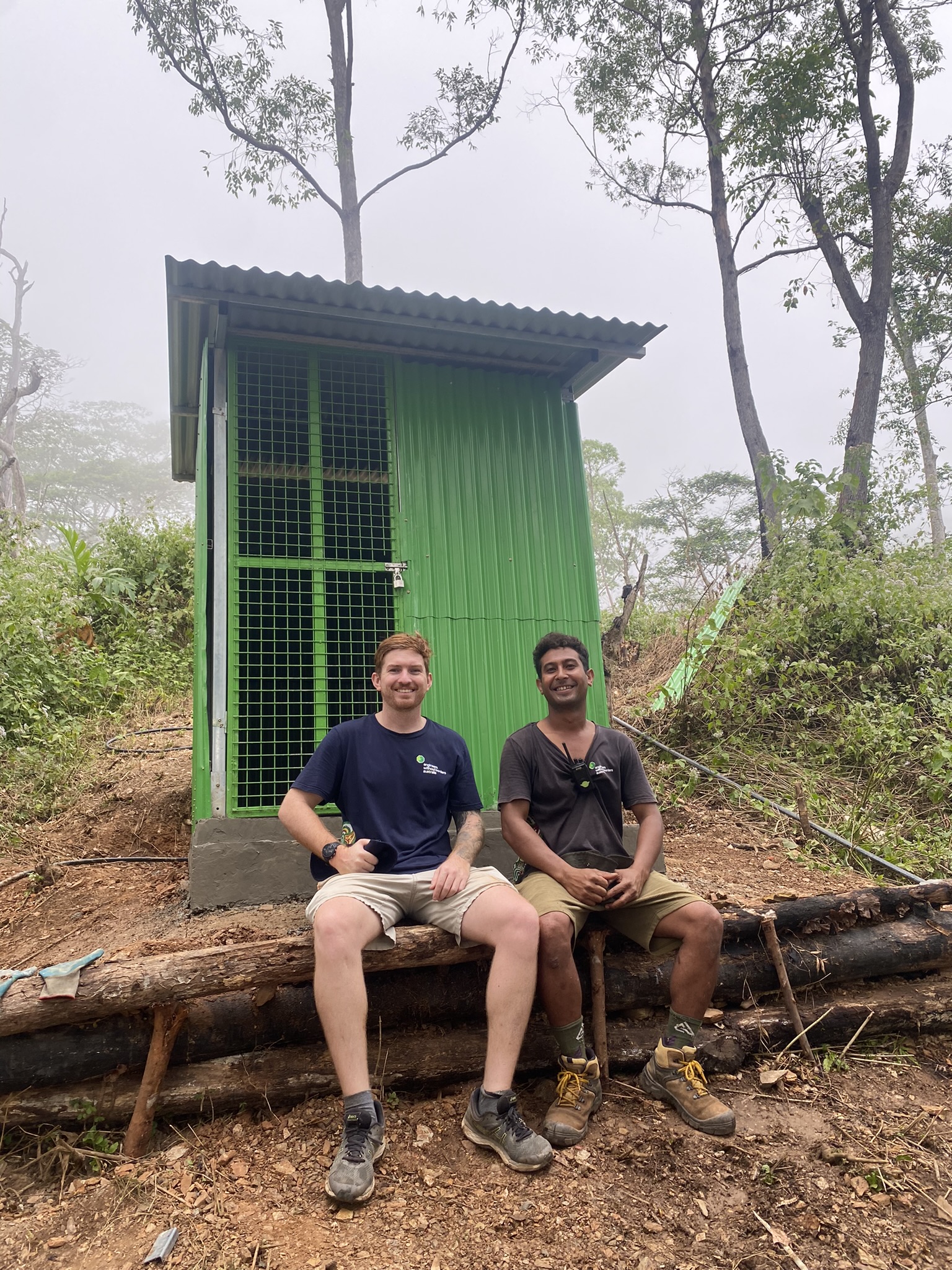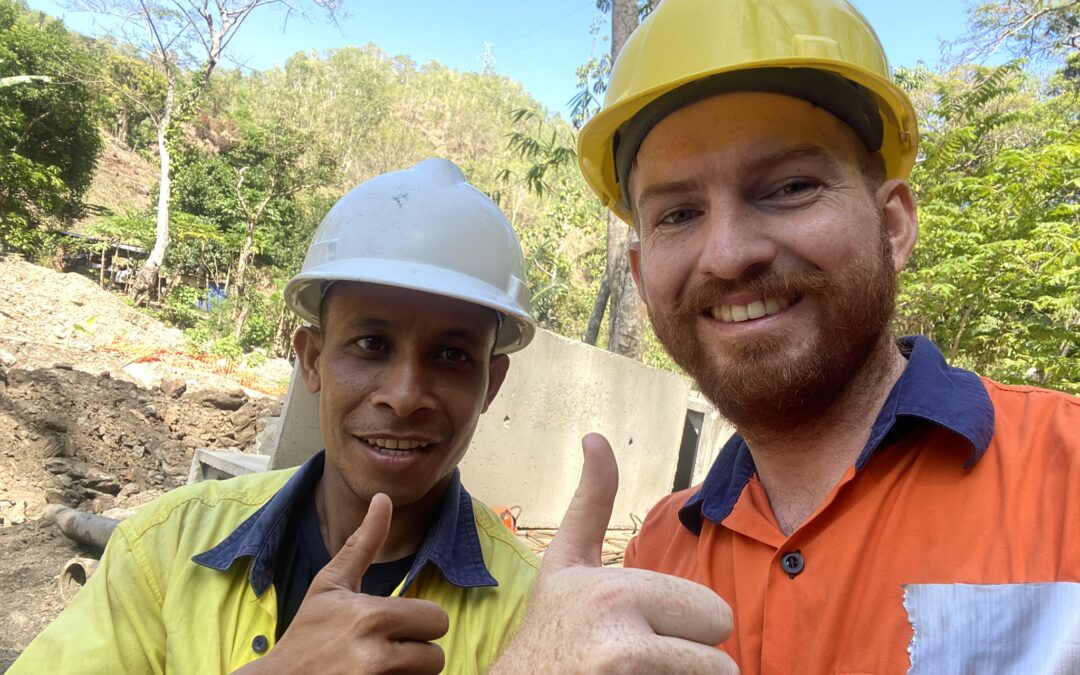Jack Bygott hasn’t always been passionate about engineering; he was just always good at maths. Like most kids who were good at maths or science, he “fell into” studying engineering at university.
“I was having second thoughts about studying engineering but then I came across Engineers Without Borders Australia actually, and that kind of gave me an insight into what you can do as an engineer and the kind of impact you can have”. From then on, Jack knew he wanted to volunteer with EWB immediately after graduating from university.
Over the years, Jack kept an eye out for volunteer opportunities. But after working at GHD in Brisbane for a few years as a graduate engineer, he was close to giving up on the idea. When the opportunity to volunteer as an Australian Volunteers Program Field Professional in Timor-Leste appeared in an EWB newsletter during the pandemic, the position description aligned perfectly with what he had been doing professionally: building water systems.
Jack is a hydromechanical engineer at Sunwater and is currently studying for a post-graduate certificate in freshwater ecology, related to his work in fish passage – “basically getting native fish around obstructions in rivers like dams, weirs and crossings to recover migratory fish populations”, and his enjoyment and appreciation for engineering has only increased with time. “It’s a very practical career and I kind of have grown to enjoy it more than I ever thought I would”.

Australian Volunteer Jack Bygott on a site visit in Timor-Leste with local volunteers Jamie, Crissia, Joanna and EWB Technology Development Lead Romeo.
In June 2022, Jack arrived in Timor-Leste knowing very little about the country. “I remember thinking before I came, you know, there’s no information on this place!” He was thankful for the Australian Volunteers Program offering a pre-departure briefing with other Australian volunteers that included nurses and doctors, and intensive language lessons in Tetun, one of Timor-Leste’s official national languages. The pre-departure training stood out to Jack as being one of the most impactful experiences for him: “We were taught all about capacity building and the influence that capacity building has, as opposed to just directly doing stuff – implementing stuff yourself. When I learned about that, I was like, wow, that’s much more effective – and sustainable. The localisation of knowledge is so much better than just going in and doing things yourself”.
He reflected, “It gets rid of the idea that you’re going to go over there and be the champion of the people which is a very common attitude in volunteers. They kind of refined that to be a teacher, be a sidekick, be helpful.”
Jack approached his work in Timor-Leste with an open mind, acknowledging the country’s history, and witnessing its cultural diversity, including local cultural ceremonies prior to the commencement of engineering projects. His work included supporting EWB Technology Development Lead Romeo for water systems projects, from community consultations through to project completion. One of the groups that the EWB team and Jack worked with were the Feto Enghinera, a group of local female graduate engineers, who he considers to be the team’s “ biggest strength”.
“We have women graduate interns [through Feto Enginhera] take on a small but meaningful project, minus the gender bias, that limits women’s participation in the engineering sector. They go through all phases from design to commissioning with the support and review of the local team… It’s [about] creating an environment where they’re set up to succeed before they make that next step, and in the process they help EWB continue kicking goals by improving access to WASH. I really love this program because it came organically from the team, it’s what they wanted to do.”

Monitoring visit to check in on the temporary pump operation for the water system implemented at Darlau in November 2022.
While his work helping the team in Darlau has been well-documented, Jack’s own passion for capacity-strengthening and supporting the local team is reflected in his choice to continue remote volunteering now that he’s back in Australia. He has a check-in with his contacts in the Timor-Leste team weekly or fortnightly, and supports them by reviewing their work at certain phases of projects.
“I’m really encouraged by the process that the team is currently following”, he says. Jack taught (with the help of YouTube), some of the Timor-Leste team how to use EPANET, a water system modelling tool, and it’s since been adopted by more of the team and applied to projects. “Now, I’m getting models from multiple different people over there from the Feto Enghinera group that are high quality. It’s good work”. Jack loves that he has left a positive impact on the team in Timor-Leste: “Some of them are better than me and the others are learning it. It’s a tidbit of these guys really picking stuff up, and they’re doing stuff themselves”.
By the time he left Timor-Leste in June 2023, Jack was proud of the local team’s growth in confidence and skills to self-manage and handle complex projects independently from start to finish. He praises the local team’s work with communities and their skills in mobilising, emphasising that 80% of the work was done by local community volunteers.
“I learnt a lot back from the Timor team; fabrication skills, construction management and how to leverage partnerships. Stuff I don’t get to do in my day job. They are a tiny team but they hustle their way into completing big projects. Watching them mobilise a rural community into a construction team is inspiring.”
Because there is so little information about Timor-Leste, Jack and other Australian volunteers encountered few tourists – both international and domestic, on their weekend visits exploring Timor-Leste. They spent weekends diving around the pristine coral reef, swimming under waterfalls, and spearfishing in isolation. Jack is still spearfishing back in Australia around Tweed Heads and Moreton Bay, and is even returning to Timor-Leste in September to go spearfishing with EWB’s International Engineering Programs Manager – also named Jack, who is now his good friend!

Jack and EWB Technology Development Lead, Romeo, taking a break from site work in the Dili heat, sitting in front of the filter shelter for the Darlau community water system.
Reflecting on his time in Timor-Leste, Jack has learned to slow down. Working as a consultant prior to volunteering, he was initially frustrated by the shift from a high-efficiency, deliverable-focused mindset to a more deliberate, capacity-building approach. But he soon realised that his role was not about what he could go in and do more efficiently, but to impart his skills to the local team, enabling them to take full ownership of projects that would create a lasting local impact.
“I had to really slow down and remember the Australian Volunteers Program training. It’s about filling the gaps with your own skillset and providing [the answers to] those gaps. It’s not about how many water systems can I design in 12 months? It’s [about] how much of [my own skills] can I pass on to the local team?”
If you’re interested in volunteering overseas as an Australian Volunteers Program Field Professional with EWB, check out our current opportunities. The Australian Volunteers Program is an Australian Government-funded initiative.


